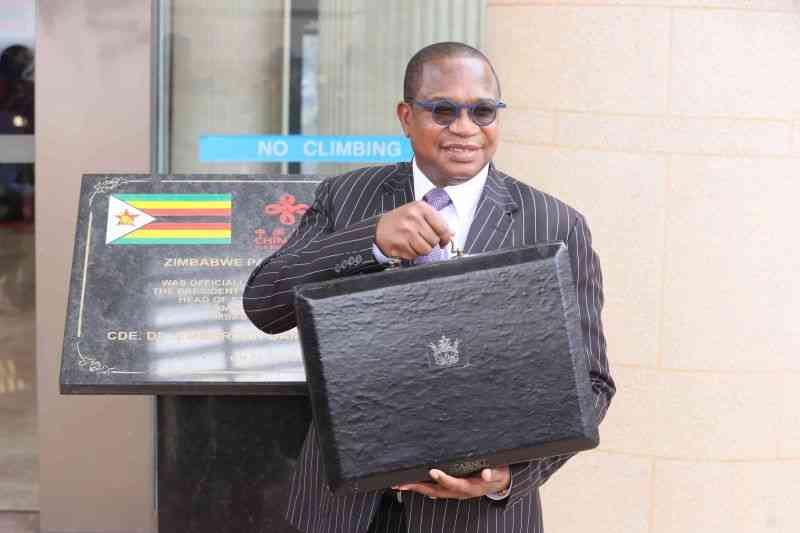
Let me begin my submission by stating the obvious - financial resources are never enough.
Elementary studies of economics posit that one characteristic of money is scarcity and for that reason there’s always competing forces and interest in how it is distributed.
The situation is made worse in contexts such as Zimbabwe with well documented economic challenges amid a global recession.
So essentially, what is available in the national purse is not enough to meet even what the country needs to satisfy the needs of the population.
The pre-budget consultative process was instructive in how the various government ministries and entities sought to motivate for support, including to embark on capital intensive infrastructural developments within their purview.
Unfortunately, the budget votes proposed by Finance minister Mthuli Ncube are just but a drop in the ocean.
This is possibly due to what the government and/or the personnel managing the national purse priorities.
Resources are allocated based on priorities and the extent to which citizens rights and freedoms will be enhanced.
- Mavhunga puts DeMbare into Chibuku quarterfinals
- Bulls to charge into Zimbabwe gold stocks
- Ndiraya concerned as goals dry up
- Letters: How solar power is transforming African farms
Keep Reading
Which brings me to the first of five points I have in respect of the proposed budget vote towards the media sector that suggests how low the information sector is on the government’s priorities.
Both the ministry of information and independent commission supporting the right to information are among the least - if not least - funded entities.
The media and information are not viewed as enablers to other rights, including the right to life, but just as a vehicle in which to communicate government programs.
There’s little investment in growing the sector to become an industry that can create jobs and contribute to the very same fiscus.
Beyond investing in the sector and supporting competitive content creation, there’s little consideration of enhancing citizens’ access to information through investing in the digitization program.
The budget vote for the digitization program, which is my second point, is extremely low to the extent that at this rate the process will be completed in 2030.
Zimbabweans should be burying their hands in sand for a country that was among the first to introduce television broadcasting in Africa - it is so behind in migrating from analogue to digital.
The broadcasting regulatory authority reports that of the forty-eight transmitters only eighteen are now fully digital.
With the current budget vote, assuming that the money is released on time and the prevailing rate of the local currency and the US dollars, only an additional four transmitters can be digitised.
This brings me to my third point around allocating local currency for equipment that needs to be imported. Yet in the same budget some taxes are levied in foreign currency.
It is oxymoronic that the government wants to generate revenue in foreign currency but spend in local currency.
In this hyper inflationary environment it makes it a nightmare to plan for a critical national project as digital migration without knowledge of when foreign currency will be made available.
The project is set up to fail and citizens will continue to be deprived of the right to access information.
A significant number of the population have no access to the recently licensed television stations. In any event, the privileged ones now access foreign media content as the locals cannot compete in terms of quality.
The media reforms agenda is thus a pie in the sky as the opening up of the broadcasting space only benefits a fraction of the population.
There is thus no access to a plural and diverse media, which is a critical benchmark of the reform process.
In delaying digitization, there will consistently be a premium on the right to access information, something that doesn’t advance Section 62 of the constitution or the implementation of the Freedom of Information Act.
What makes the situation even bleaker, which is my fourth point, is that those that are providing media services are crippled to a worrying extent of facing closure.
While there are many factors that account for the obtaining unsustainable operating environment for the media, part of the causes are over-regulation which results in multiple taxation.
Zimbabwe is among the last countries in the region that still has multiple regulatory agencies for the media.
These include the Broadcasting Authority of Zimbabwe (BAZ), Transmedia, the Zimbabwe Media Commission (ZMC) and by extension the Postal and Telecommunication Regulatory Authority of Zimbabwe (Potraz) all of whom in one way or the other are entitled to some taxes from these authorities.
Add to that the taxes that these media organizations have to pay to the Zimbabwe Revenue Authority and to the Zimbabwe Music Rights Association further dwindle the merge revenues that these organizations make.
The national broadcaster, the Zimbabwe Broadcasting Corporation (ZBC) audience trust ratings continue to dwindle as is reflected on its coverage of elections. As a result the revenue streams continue to dwindle despite legal authority to collect taxes from members of the public.
It is prudent as part of the reform trajectory for the national broadcaster to be transformed in order for it to break even and not accrue further debt.
Legacy debts of the national broadcaster are already a burden on the taxpayer and as such the budget should be reflective of this transformation agenda.
Community broadcasters will need support in so far as skilling, widening frequency scope and ensuring sustainability.
Efforts to enact sexual harassment policies in newsrooms should be supported and so are efforts to set up an employment council that takes into account the conditions of service and welfare of journalists.
The fifth and last point is to suggest a way forward in respect of the challenge of multiple taxation and over regulation of the media.
While some tax breaks and incentives could be a possible solution in the short term, it is now time that Zimbabwe moves towards convergence.
Convergence, a principle that has already been approved by the Zimbabwean cabinet should now be implemented as a means to cut cost and for value beneficiation.
BAZ is overly reliant on the broadcasters it should serve for operational costs yet there is the Universal Services Fund (USF) that could also be used to support the growth of the sector. Currently, the fund is being used for the setting up of information centers and donation of computers.
But we should critically analyze what information is being accessed through these information centers if the local content production is not being supported from the fiscus.
If the country is to fully digitize, which is now the only game in town, the role of BAZ to issue licenses will soon be overtaken as broadcasting becomes more technologically driven.
BAZ and Potraz will be at cross purpose - something that is already happening. And it has been the media organizations and ultimately the taxpayers bearing the cost.
In conclusion, this submission has raised five issues in respect of the budget vote for the media and information sector.
I argue that there is nothing in the budget that shows an intention to advance the right to information and growth of the media sector.
Rather by being the least funded government agencies, the media is viewed just as a channel and vehicle of communication and not a potential industry that can contribute to the gross domestic product and to the national fiscus.
- Nigel Nyamutumbu is a media development practitioner, currently serving as the Coordinator of a network of journalistic professional associations and media support organizations the Media Alliance of Zimbabwe (MAZ). He made this submission before the parliamentary portfolio committee on information, publicity and broadcasting services. He can be contacted on njnya2@gmail.com or +263 772 501 557










